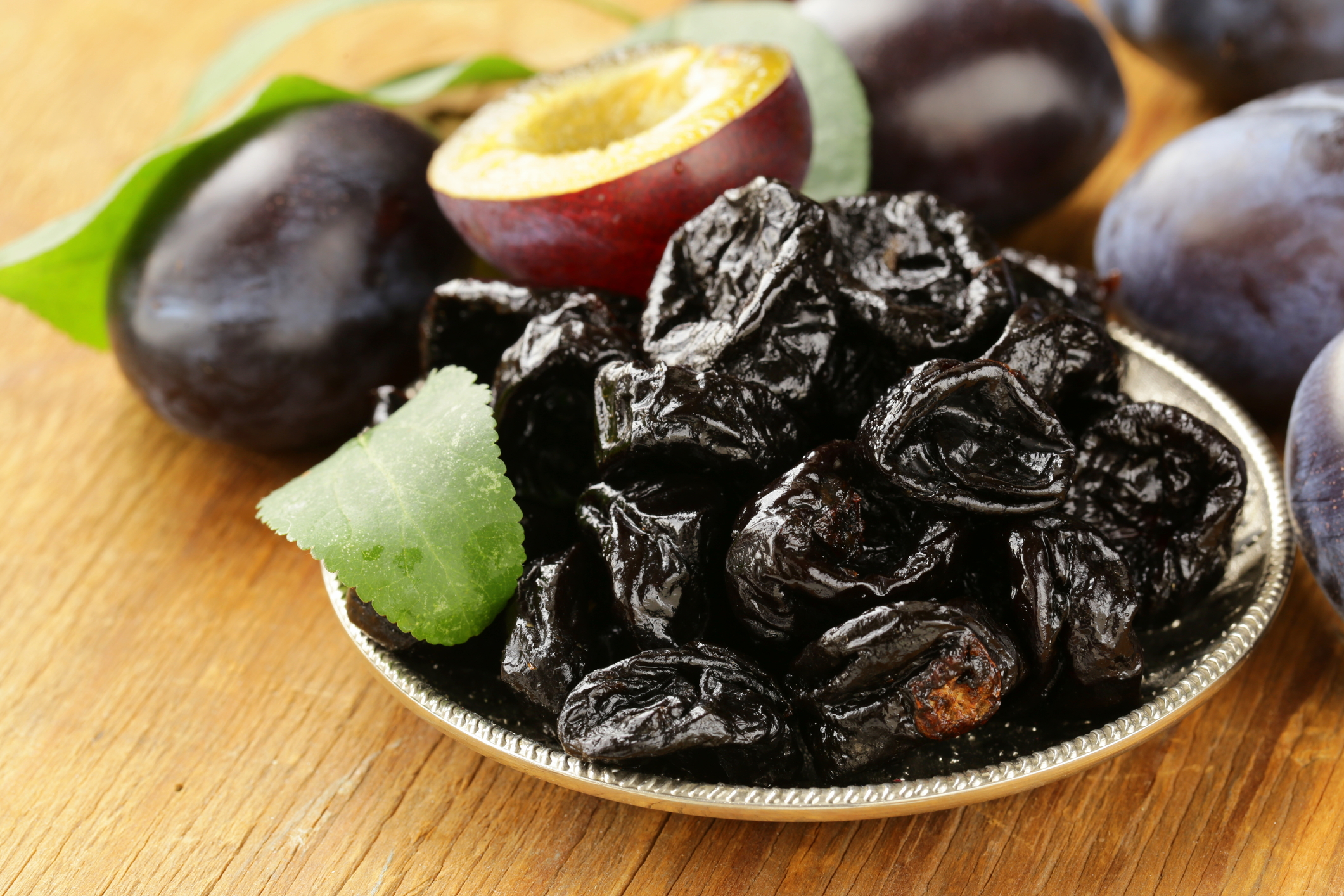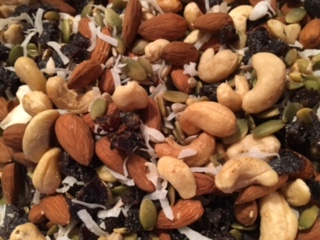 Studies have shown that eating prunes supports bone health, especially in postmenopausal women. Prunes are a source of several key bone minerals: magnesium, potassium , manganese and boron. These minerals help to increase bone mineral density while reducing bone breakdown. Prunes also contain vitamin K and polyphenols, which play an important role in bone mineralization and reducing bone mineral loss.
Studies have shown that eating prunes supports bone health, especially in postmenopausal women. Prunes are a source of several key bone minerals: magnesium, potassium , manganese and boron. These minerals help to increase bone mineral density while reducing bone breakdown. Prunes also contain vitamin K and polyphenols, which play an important role in bone mineralization and reducing bone mineral loss.
Prunes can be added to salads, your morning oatmeal or to snack mixes. My favorite recipes below!
Cauliflower Rice with Prunes and Sliced Almonds
Ingredients:
- 1/4 cup sliced almonds
- 1 medium head cauliflower or 4 cups cauliflower rice
- 1/2 cup bone broth*
- 2 tablespoons honey
- 2 tablespoons olive oil
- 3/4 teaspoon ground cumin
- 3/4 teaspoon ground turmeric
- 3/4 teaspoon paprika
- 1/2 teaspoon ground cinnamon
- 3/4 teaspoon sea salt
- 1/2 cup of dried prunes, cut in pieces
Preparation:
- Toast almonds in a large skillet over medium heat, tossing occasionally, until light browned, 8-10 minutes. Transfer to small bowl and wipe out the skillet.
- Cauliflower rice. If purchased head of cauliflower, working in batches, pulse cauliflower in a food processor until rice-like texture to make 4 cups of cauliflower rice.
- Whisk bone broth and honey together in a small bowl.
- Heat olive oil in skillet over medium heat. Add cumin, turmeric, paprika and cinnamon and cook until fragrant, about 30 seconds.
- Immediately add cauliflower and stir to coat. Season with salt and pepper and stir until cauliflower is softened, 3-5 minutes.
- Add bone broth mixture and prunes and stir to combine. Cover and continue to cook until just tender 3-5 minutes more.
- Transfer cauliflower mixture to a serving plate and stir in 1/2 of the almonds. Top with remaining almonds before serving.
This recipe is great because it incorporates so many foods that are good to the bone! Also, wonderful anti-inflamatory spices!.
Delicious as a side dish or as a vegetarian main dish!
*Bone broth can be purchased from your local health food store or can be made by boiling down chicken bones. A bone broth recipe can be found at my website: https://nurturedbones.com/recipe/homemade-chicken-broth/
Nurtured Bone Building Snack Mix
- 1 cup chopped prunes

- 1 cup raw Almonds
- 1 cup raw Cashews
- 1 cup raw Pumpkin seeds
- 1 cup raw Sunflower seeds
- 1 cup flaked unsweetened Coconut flakes or Coconut chips
Mix the above together and enjoy as a snack or mix into yogurt or on top of a salad!
Concerned about bone loss? Take my free bone loss quiz to determine your risk for bone and learn things you can start doing today to build strong, healthy bones for life! https://nurturedbones.com/







